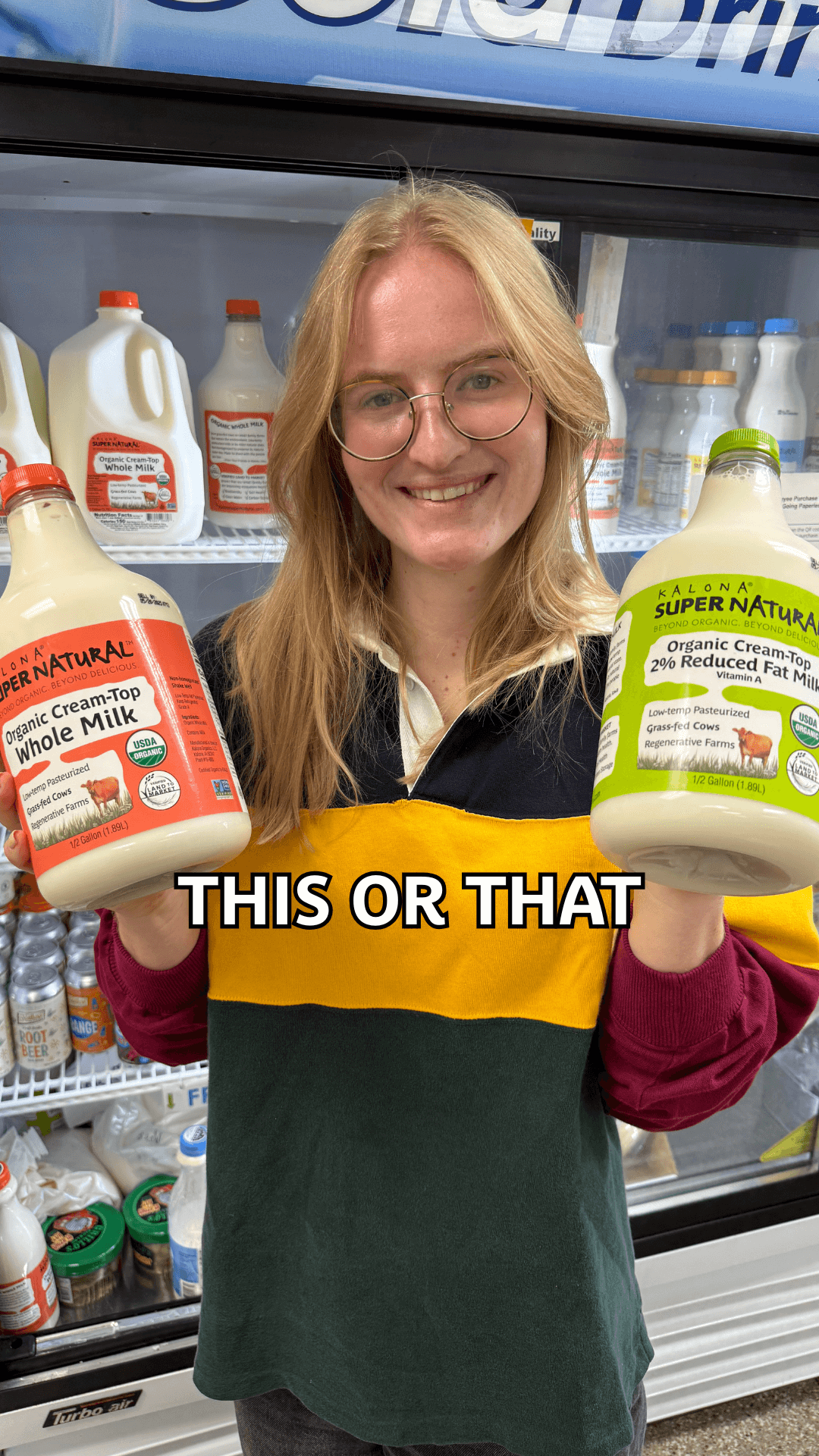
Finding the Right Balance
For decades, conventional nutrition advice steered us toward the low-fat dairy section. Recently, scientific research has expanded our understanding of dairy nutrition, suggesting that both full-fat and low-fat dairy products have their place in a healthy diet. Let’s explore what the science says to help you make informed choices.
The Surprising Truth About Dairy Fat and Weight Management
Research published in the European Journal of Nutrition has found some interesting associations between dairy fat consumption and weight. A study tracking over 18,000 women revealed those who consumed high-fat dairy had an 8% lower risk of developing obesity compared to those who opted for low-fat alternatives, according to findings in The American Journal of Clinical Nutrition. This doesn’t mean low-fat dairy causes weight gain, but rather suggests that full-fat dairy might offer unique benefits.
Understanding Nutrient Profiles
Both full-fat and low-fat dairy products provide essential nutrients. While full-fat dairy contains fat-soluble vitamins A, D, E, and K that are better absorbed with fat, low-fat options like Kalona SuperNatural’s low-fat cottage cheese and milk are excellent sources of high-quality protein, calcium, and other essential nutrients without the higher calorie content.
When choosing low-fat dairy products, Kalona’s commitment to minimal processing ensures you’re still getting clean, quality nutrition without unnecessary additives that are common in many conventional low-fat products.
Heart Health: Debunking Old Myths
Our understanding of dairy fat and heart health has evolved. A comprehensive study published in The Lancet followed 130,000 people across 21 countries and found no significant link between dairy consumption and increased risk of cardiovascular disease or mortality.
This doesn’t mean everyone should switch to full-fat dairy, but it does suggest that dairy fat may not be the villain it was once portrayed to be. Both full-fat and low-fat dairy products can be part of a heart-healthy diet, depending on individual needs.
The Grass-Fed Advantage in All Kalona Products
Whether you choose full-fat or low-fat, Kalona SuperNatural’s commitment to grass-fed, pasture-raised cows means all our products—including our low-fat cottage cheese and milk—offer nutritional benefits compared to conventional dairy.
Research published in PLoS One demonstrates that dairy from grass-fed cows contains higher levels of beneficial compounds including:
- Conjugated Linoleic Acid (CLA): Present in both full-fat and lower-fat dairy from grass-fed cows
- Omega-3 Fatty Acids: Found in greater amounts in grass-fed dairy across product lines
- Butyrate: Supports gut health regardless of fat content
- Naturally occurring vitamins: Higher levels in grass-fed dairy products
Finding Your Perfect Dairy Balance
Both full-fat and low-fat dairy options have their place in a healthy diet:
- Full-fat dairy may provide greater satiety and contains naturally occurring beneficial fats
- Low-fat options like Kalona’s low-fat cottage cheese and milk offer excellent nutrition with fewer calories and less saturated fat
The American Heart Association notes that personal health needs vary, and your dietary choices should align with your individual health goals and medical needs.
The Kalona Difference: Quality in Every Option
At Kalona SuperNatural, we believe in offering choices that suit different dietary needs while maintaining our commitment to quality. Whether you choose our full-fat or low-fat cottage cheese and milk, you’re getting:
- Organic dairy from small family farms practicing regenerative agriculture
- Milk from pasture-raised, grass-fed cows
- Minimal processing through low-temperature vat pasteurization
- Non-homogenized products for a more natural state
- The “Almost Raw” advantage with maximum nutrient preservation
Making Your Choice: This or That?
When deciding between low-fat and full-fat dairy, consider your personal nutritional needs, taste preferences, and health goals. The good news is that with Kalona SuperNatural, you don’t have to compromise on quality regardless of which option you choose.
Our range of products—from full-fat yogurt to low-fat cottage cheese and milk—ensures that you can enjoy dairy that aligns with your specific dietary needs while supporting sustainable farming practices.
References:
- Kratz, M., et al. (2013). The relationship between high-fat dairy consumption and obesity, cardiovascular, and metabolic disease. European Journal of Nutrition, 52(1), 1-24.
- Rautiainen, S., et al. (2016). Dairy consumption in association with weight change and risk of becoming overweight or obese in middle-aged and older women: a prospective cohort study. The American Journal of Clinical Nutrition, 103(4), 979-988.
- Dehghan, M., et al. (2018). Association of dairy intake with cardiovascular disease and mortality in 21 countries from five continents (PURE): a prospective cohort study. The Lancet, 392(10161), 2288-2297.
- Benbrook, C. M., et al. (2013). Organic production enhances milk nutritional quality by shifting fatty acid composition: a United States-wide, 18-month study. PLoS One, 8(12), e82429.
